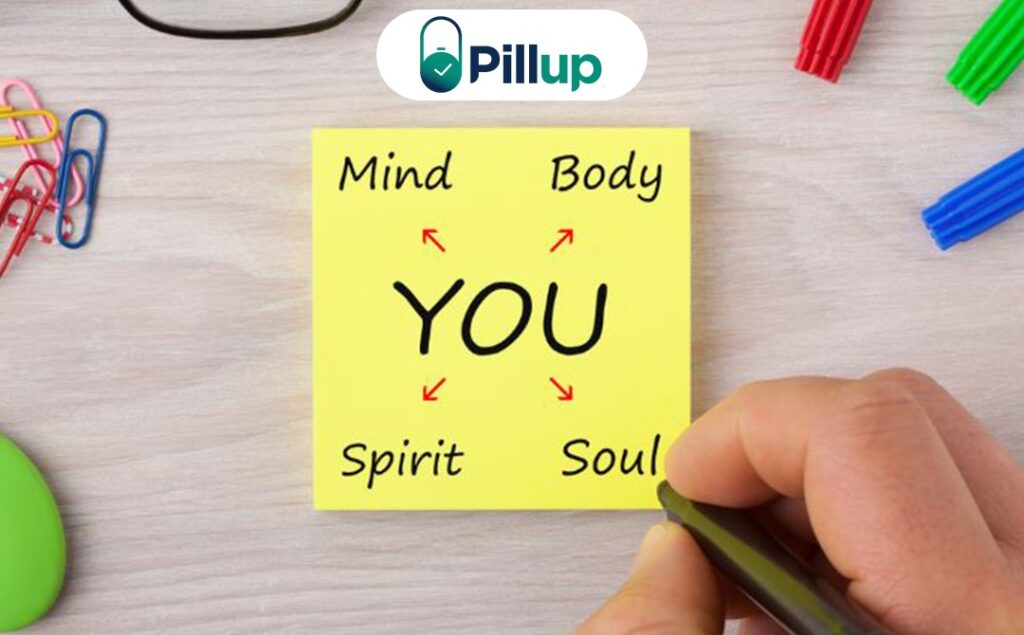In today’s fast-paced world, it’s easy to get caught up in the hustle and bustle of life. We are constantly on the go, trying to keep up with our responsibilities and meet the demands of our jobs, families, and social lives.
However, in all this chaos, it’s essential to take a step back and prioritize our emotional health. One way to do this is by practicing self-care. Self-care refers to any deliberate and proactive action that you take to care for your physical, mental, or emotional well-being because emotional health and physical health are intertwined.
Moreover, it involves engaging in activities that help you to recharge, manage stress, and improve your overall quality of life. The key is to prioritize self-care and make it a regular part of your routine to maintain good physical and emotional health.
In this article, we’ll explore emotional self-care, and the importance of self-care for emotional health and provide tips on how to incorporate it into your daily routine.
What is emotional self-care?
Emotional self-care refers to the practice of taking care of one’s emotional well-being. This includes developing healthy coping mechanisms, managing stress and anxiety, and taking time to engage in activities that bring joy and happiness.
Emotional self-care may involve practicing mindfulness, seeking therapy or counseling, connecting with friends and loved ones, and engaging in hobbies or other forms of self-expression. The goal of emotional self-care is to cultivate a sense of emotional resilience so that individuals can better navigate the ups and downs of life while maintaining good mental health.
The Importance of Self-Care for Emotional Health
Self-care is essential for maintaining good emotional health. When you prioritize self-care, you are taking an active role in managing your emotions and preventing burnout. Here are some of the key benefits of self-care for emotional health:
- Reducing Stress: Stress is a common trigger for emotional issues such as anxiety and depression. By practicing self-care, you can reduce your stress levels and prevent these conditions from worsening.
- Boosting Mood: Self-care activities such as exercise and spending time with loved ones release endorphins, which are feel-good chemicals that boost your mood and improve your overall outlook.
- Improving Self-Esteem: When you take time to care for yourself, you send a message to your brain that you are valuable and deserving of love and attention. This can boost your self-esteem and help you to feel more confident in your abilities.
- Strengthens relationship: By practicing self-care, you can make sure your needs are met as well. This helps to foster stronger relationships with friends and loved ones, as it demonstrates that you value yourself and your relationships.
- Enhances creativity: Engaging in activities such as art or music can help to open up creative pathways and inspire new ideas. Self-care is an essential part of emotional health, and it should be a priority for everyone.
- Improves concentration: When you take time out for yourself, it can help to clear your mind and improve your focus. This can be beneficial when tackling tasks that require high levels of concentration.
Tips for Incorporating Self-Care into Your Daily Routine
Taking care of your emotional health is crucial for overall well-being. Here are some self-care tips to help you prioritize your emotional well-being:
- Get regular exercise: Even a short walk each day can change your mood and improve your physical health. If you can’t do 30 minutes at once, try breaking it up into smaller increments throughout the day.
- Eat healthy, balanced meals and stay hydrated: Your diet can affect your energy and focus, so make sure to nourish your body with nutritious food and plenty of water. Limit your intake of caffeinated drinks like coffee and soda.
- Prioritize sleep: A consistent sleep schedule is key to maintaining good mental health. Try to reduce your exposure to blue light from screens before bedtime, and make sure you’re getting enough sleep each night.
- Try relaxation techniques: Explore relaxation and wellness programs that incorporate meditation, breathing exercises, or muscle relaxation. Schedule regular time for these activities and others you enjoy, like journaling or reading.
- Set goals and priorities: Prioritize your tasks and learn to say no when you need Focus on what you have accomplished at the end of each day, rather than what you didn’t get done.
- Practise gratitude: Take time each day to reflect on what you’re thankful for. Write down specific things you’re grateful for or replay them in your mind.
- Focus on positivity: Challenge negative thoughts and focus on the positive. Surround yourself with positive influences and practice positive self-talk.
- Stay connected: Reach out to friends and family for emotional support and practical help when needed. Maintaining social connections is important for emotional well-being.
Conclusion:
Overall, emotional self-care is an ongoing practice. By prioritizing self-care activities, you can reduce stress, boost your mood, and improve your overall well-being. Remember that self-care is not a luxury, it’s a necessity. So take the time to care for yourself and make it a priority in your daily routine. Your emotional health will thank you for it.
With PillUp, you can get access to personalized mental health resources and help with your self-care journey. We offer multiple ways to remind you to take your medication, including WhatsApp messages, phone calls, and app notifications and, you’ll never miss a dose, whether you’re at home or on the go. Say goodbye to the hassle of managing your medication – PillUp makes it easy and convenient.



